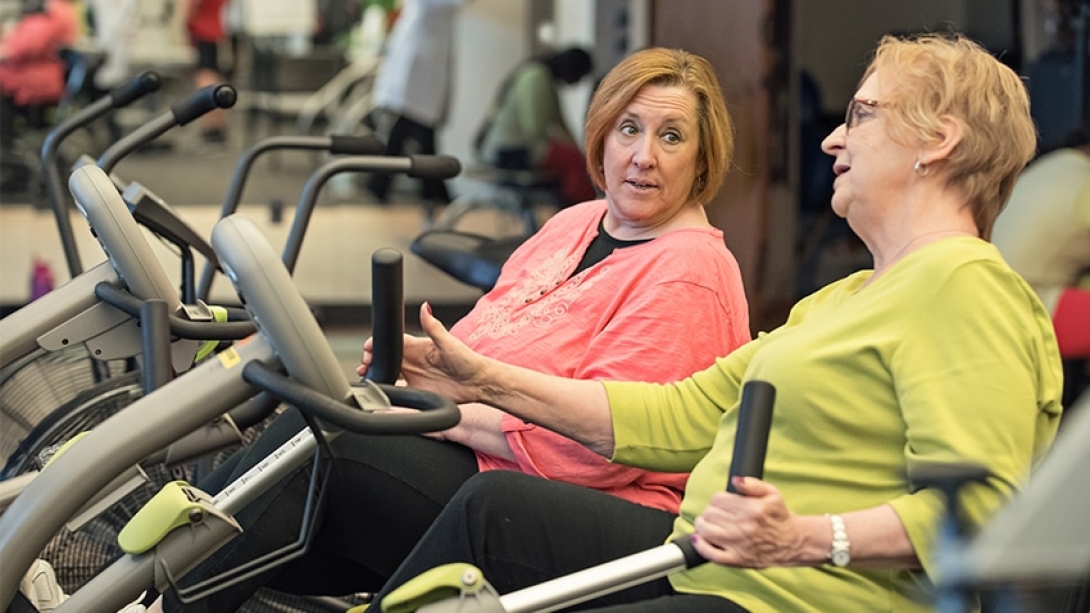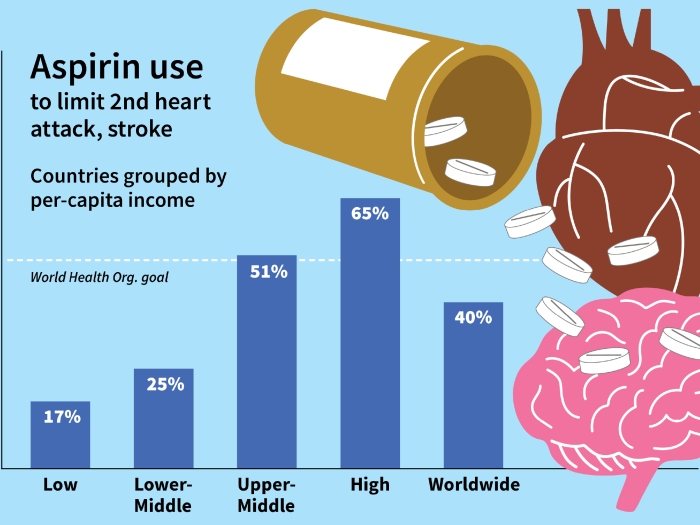A supervised diet and exercise program helped a retired woman combat two serious health conditions. She spoke about her life-changing journey.
1:00 PM
Author |
When Barb Bruemmer enrolled in the Michigan Medicine Metabolic Fitness Program after she was diagnosed as prediabetic, the 65-year-old had no idea she'd be embarking on a new, healthier way of life.
ASK ALEXA: Add the Michigan Medicine News Break to your Flash Briefing
"I would have placed money on me not completing the program," Bruemmer says.
But with help and encouragement from MetFit employees and fellow patients, the Ann Arbor resident proved herself wrong.
Bruemmer, who had high blood pressure in addition to prediabetes, was advised by her primary physician to enroll in the MetFit program to help manage both conditions.
The program, which requires a physician referral, offers supervised workout sessions, nutrition education, stress management and behavior modification strategies over 12- and 24-week sessions.
Facing her fears
The program would ultimately put Bruemmer on the road to better health — but the retired software trainer had to convince herself first.
Several factors contributed to Bruemmer's hesitancy, including a knee injury that for years had limited her ability to exercise. Even the sight of an elliptical machine was intimidating, says Kim Petrovic, a MetFit clinical exercise physiologist.
"I remember the first time I met Barb and was showing her the equipment in the gym, she pointed to the elliptical and said, 'I don't think I'll ever get on that machine!'" Petrovic says.
MORE FROM MICHIGAN: Sign up for our weekly newsletter
With Petrovic's encouragement, Bruemmer started out small with a goal of two minutes on the elliptical. She eventually built up to 45 minutes during her 24-week program.
Hesitation soon gave way to motivation.
"She secretly tells me she loves the elliptical now," says Petrovic. "I'm so proud of her."
It's the kind of support that Bruemmer says kept her going, along with the camaraderie of fellow MetFit participants and the program's various offerings.

Going 'all-in'
Once Bruemmer became accustomed to the routine, there was no turning back.
"I went all-in, even though at first I thought a 12-week program was far too long and I'd never make it to the end," she says. "Now I realize it's too short. I needed 24 weeks to really cement the program into my life."
Cementing the program meant regular workouts and healthful food choices that had Bruemmer paying attention to sugar and salt content.
She began seeing results within weeks, including weight loss and changes in her body.
Even more important, Bruemmer saw her blood pressure go down, which allowed her to go off blood pressure medication, and her sugar levels drop (she's no longer considered prediabetic).
And the knee issue that plagued Bruemmer for years? It's now a thing of the past.
"I always thought exercise would exacerbate the pain, but it has done the opposite, she says. "I realize I could have pushed myself harder years ago."
Strength from within
Although she completed the program last December, Bruemmer values her continued access to MetFit's dedicated fitness center, an integral part of her five-day-a-week workout routine.
SEE ALSO: 'Healthier and Stronger': Metabolic Fitness Program Participant Makes Big Change
"At 65, I feel so good," she says, adding, "I would have told my younger self to find a program like this one."
Her advice doesn't stop there. To those on the fence about embracing a healthier lifestyle, Bruemmer says, "Be open to it — you won't get benefits unless you put your all into it. The changes might seem small at first, but eventually you'll see big results."
Petrovic agrees, citing the message she gives MetFit participants on a regular basis: "You are stronger than you think!"
Photo by Leisa Thompson
For more information about Michigan Medicine's Metabolic Fitness Program, call 734-998-5679 or click here.

Explore a variety of healthcare news & stories by visiting the Health Lab home page for more articles.

Department of Communication at Michigan Medicine
Want top health & research news weekly? Sign up for Health Lab’s newsletters today!





